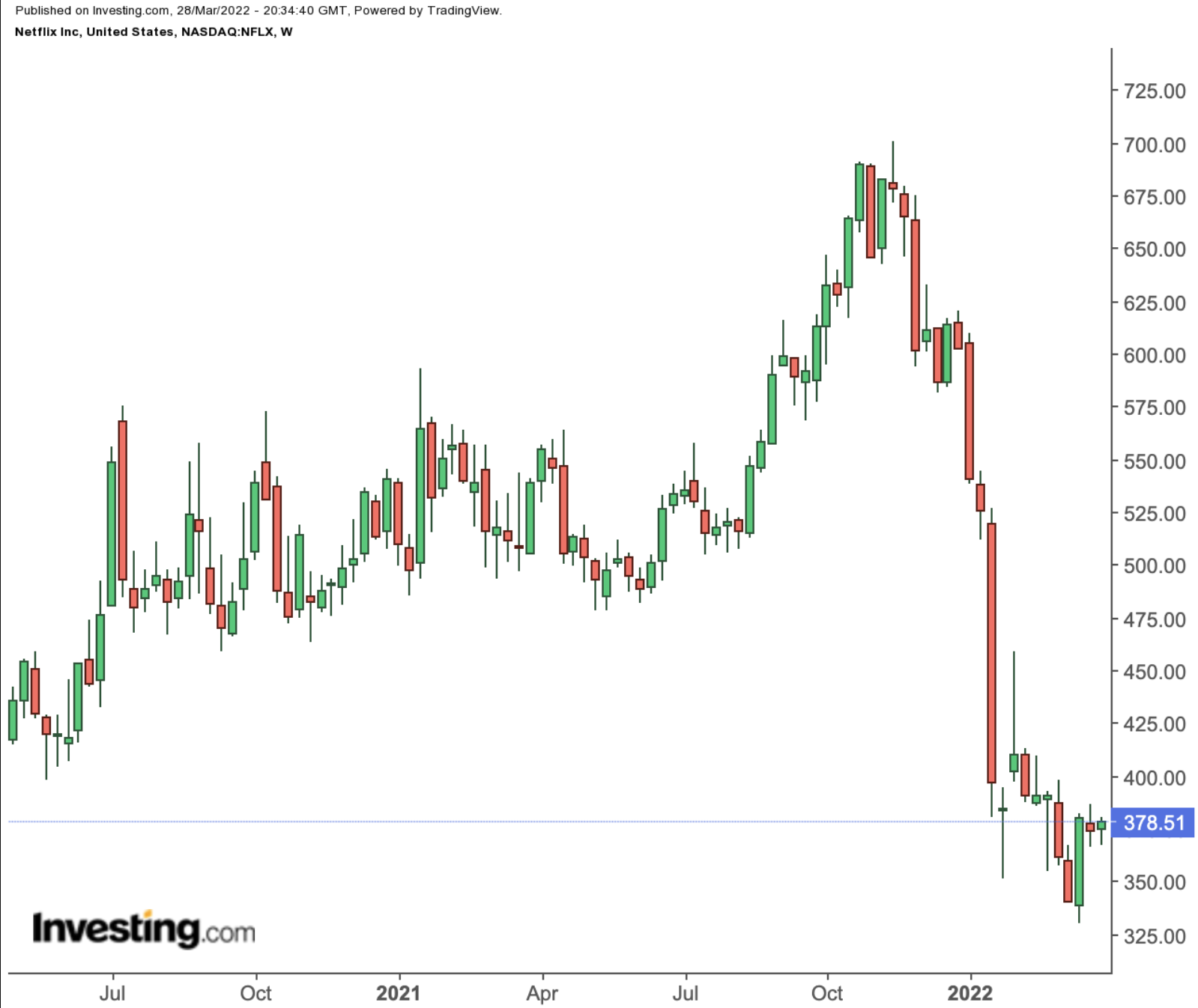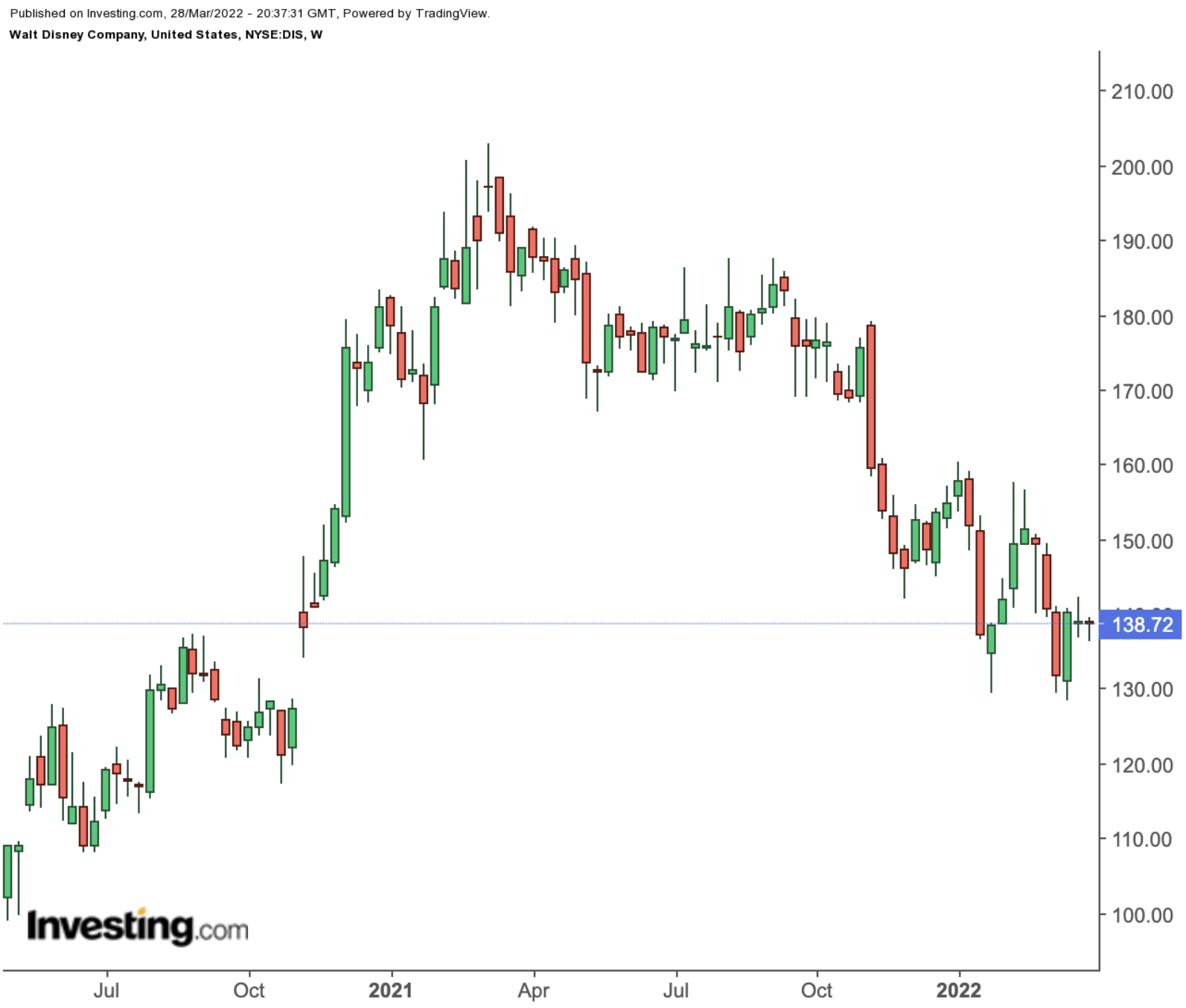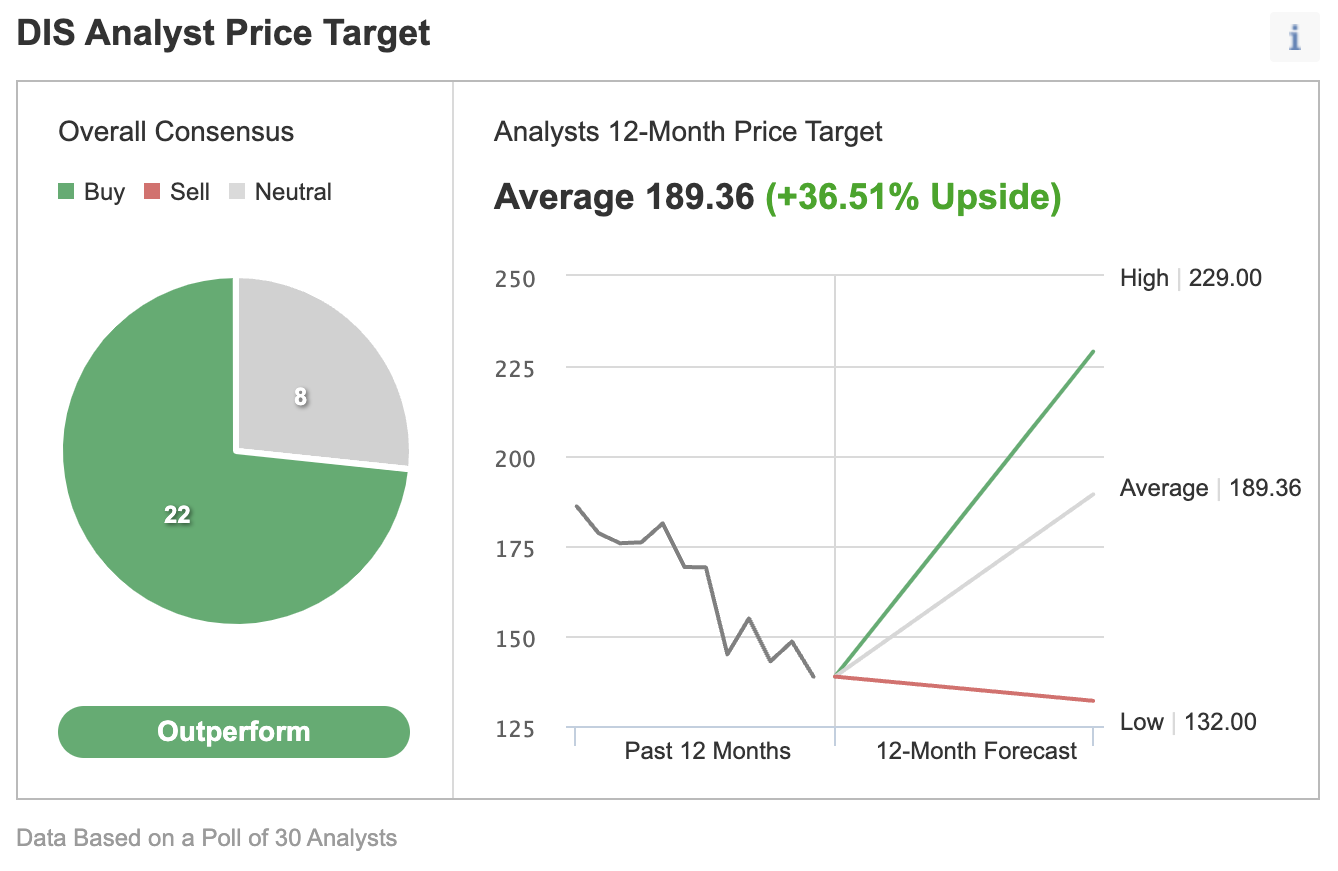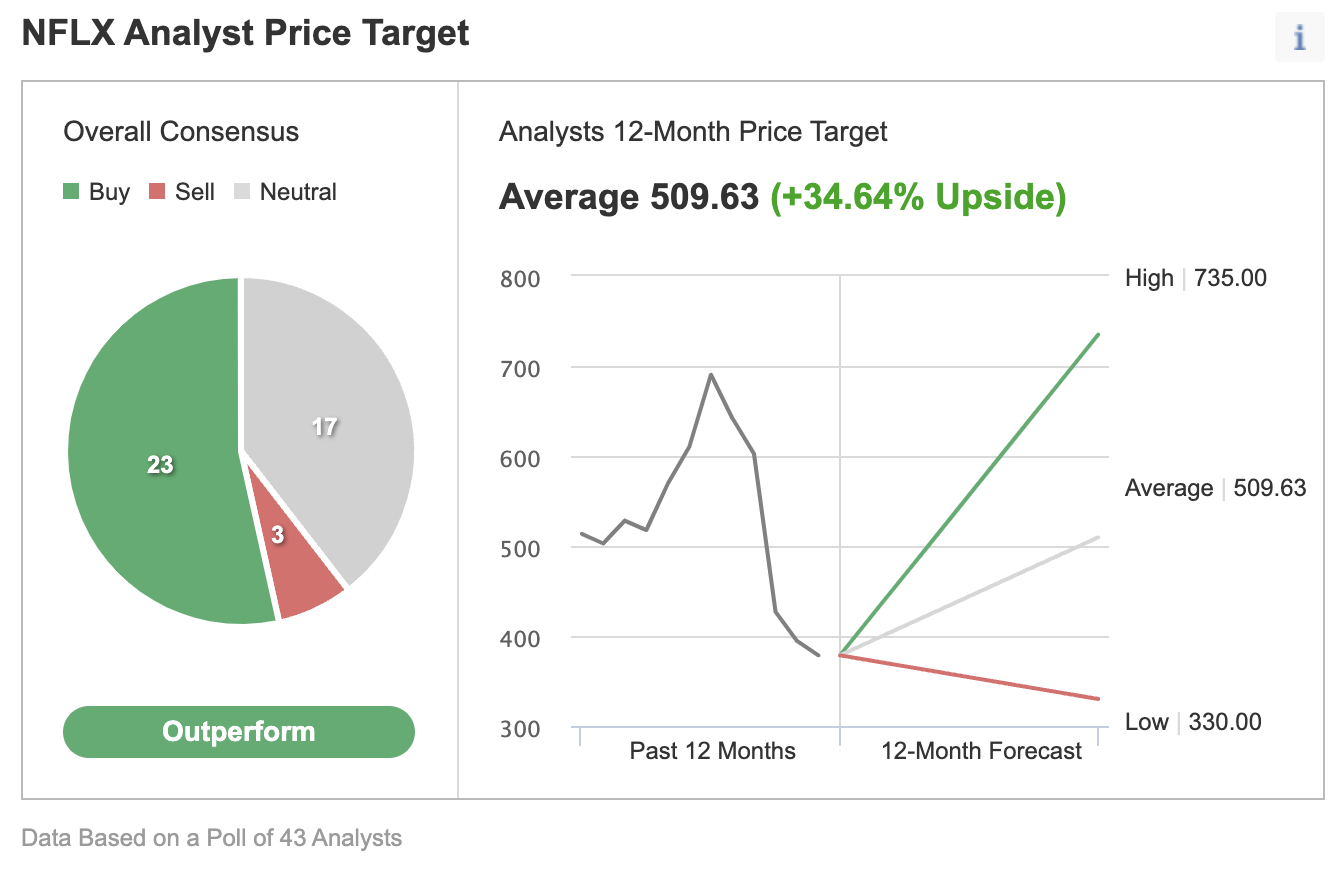Shares of the world’s two largest streaming entertainment giants, Netflix (NASDAQ:NFLX) and Walt Disney Company (NYSE:DIS), appear to be on a divergent path this year.
Pressured by a sharp pullback in growth-oriented stocks in 2022 and a disappointing earnings report, the Los Gatos-based Netflix lost more than a third of its value so far this year. It closed on Monday at $378.51.

Meanwhile, the Burbank, California-based Disney lost only about 10.4% during the same period. It closed Monday at $138.72.

In its last earnings report, the House of Mouse showed clear signs that the worst of the COVID pandemic is over. The impressive turnaround came with solid data from its parks and resorts, where income hit a record high, fueled by a massive influx of visitors in the US, Europe, and Asia. That momentum will likely continue in the remaining part of the year as many jurisdictions remove capacity restrictions amid substantial pent-up demand for outside entertainment in the post-pandemic environment.
But the biggest surprise that Disney delivered this year came from its streaming service, Disney+, which is still attracting millions of new subscribers amid a post-pandemic lull for the streaming business overall.
In the quarter that ended on Jan. 1, Disney reported 11.8 million new Disney+ subscribers, reaching 129.8 million total subscribers, up from 118.1 million in the prior quarter. Netflix, by contrast, told investors in January that it would add only 2.5 million new customers this quarter.
More Value In Disney Stock
These robust additions result from Disney’s focus on creating new content for its most popular franchises, including Star Wars and Marvel, as well as the decision to bundle Disney+ subscriptions with its Hulu and ESPN+ services, according to the company CEO Bob Chapek.
Encouraged by these developments, analysts see more value in owning Disney shares than Netflix these days. Trading at a forward price-to-earnings multiple of 32, about the same as Netflix, Disney is now in the league of high-growth stocks. That’s perhaps the reason analysts rate Disney more favorably than Netflix.
In an Investing.com survey of 30 analysts, Disney has 22 “buy” ratings and an overall "outperform" rating.

Source: Investing.com
In the case of Netflix, Investing.com's analyst poll of 43 surveyed have a more divided opinion, with about half not recommending buying the stock.

Source: Investing.com
According to CNBC, Wells Fargo last week reiterated their overweight rating on Disney, providing a $196 price target. The firm highlighted the 10% to 11% upside it sees in domestic parks heading into 2023. Wells Fargo believes that could translate to roughly a 5% increase in company earnings per share.
The Disney-Netflix divergence, according to Bloomberg, illustrates the problem for tech stocks more broadly: Analysts expect big tech earnings growth to slow sharply.
However, Netflix has often recovered strongly from such slumps, helped by its superior content and technology. Due to this solid track record, Pershing Square’s Bill Ackman purchased more than 3.1 million shares of Netflix in late January, making him one of the top 20 shareholders.
In a note last week, J.P. Morgan reiterated Netflix as the best idea, citing “secular shift, strong content, distance from pandemic pull-forward, and material improvement in free cash flows” as the factors favoring the stock.
Bottom Line
Both Disney and Netflix belong in core media holdings for any long-term portfolio. However, Disney is in a better position to deliver growth this year as its legacy businesses reopen and deliver growth.
On the other hand, Netflix has a lead when it comes to content and technology. Instead of favoring one over the other, investors, in our view, should equally divide their positions to capture upside potential in these quality stocks.
